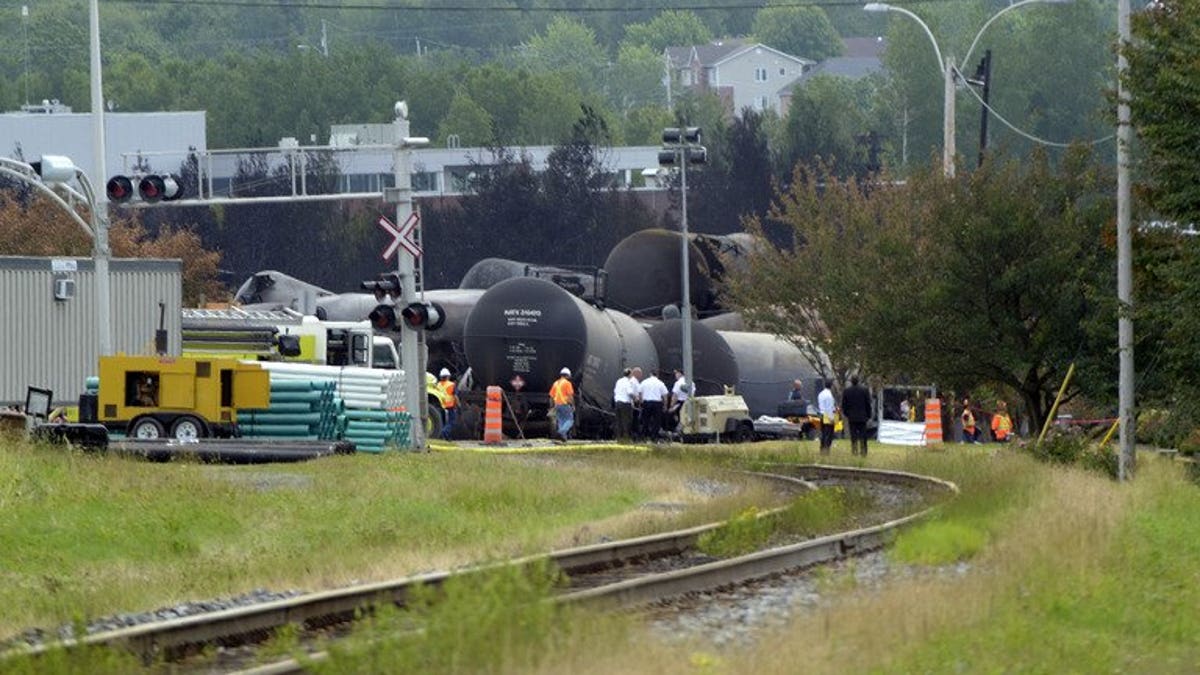
Investigators work at a train derailment site July 9, 2013 in Lac-megantic, Quebec, Canada. (AFP/File)
MONTREAL (AFP) – The oil that sparked a massive explosion when a train derailed in Quebec in July was as far lighter and more flammable than it was represented, Canadian investigators said Wednesday.
Canada's Transportation Safety Board, charged with shedding light on the country's worst accident in 15 years, said it has alerted US transportation authorities that the North Dakota crude was not correctly documented.
The oil was labeled "category three" -- the least dangerous category, used for conventional crude oil -- but should actually have been classed as "category two" for more combustible substances.
In the days following the catastrophe -- in which a runaway train crashed, spilled and ignited a massive fireball, killing 47 people -- rescue workers and investigators had already begun to express doubts about the exact nature of the train's cargo.
In particular, several remarked that conventional crude oil should not have provoked as giant an explosion as was seen that night in the picturesque town of Lac-Megantic.
The inferno raged for two days, forced the evacuation of 2,000 residents and destroyed a large swathe of the town.
Investigator David Ross confirmed the oil on the train burned at a lower temperature than conventional crude oil would.
"The lower flash point of the crude oil explains in part why the crude oil ignited so quickly once the class 111 tank cars were breached," he explained.
"The TSB is calling on the regulators to review the processes for suppliers and companies transporting or importing dangerous goods to ensure the properties of their products are accurately determined and documented for safe transportation," Ross said.
The accident "calls into question the adequacy of class 111 tank cars for transporting large quantities of low flash point flammable liquids," he said.
DOT-111 tank cars, the most commonly used in North America to transport dangerous substances, have been cited in numerous reports in the past 20 years, in particular by US authorities, for having too fragile a shell.
However, fellow investigator Ed Belkaloul noted that, at present, category one and two substances are not required to be transported in stronger containers, and changing that may be one avenue to explore to prevent future tragedies.
The Lac-Megantic tragedy highlighted the recent exponential increase in oil transported by rail, as shale oil production ramps up in North America.
